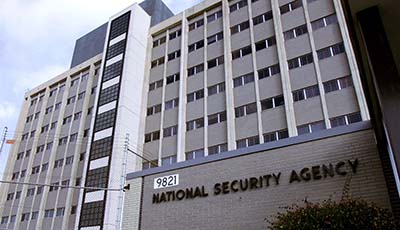Endless surprises for Al-Jazeera
Mhamed Krichen/CPJ Board memberThere seems to be no end to American surprises when it comes to Al-Jazeera. The latest was revealed by Der Spiegel, the German weekly news magazine, which reported the U.S. National Security Agency hacked into our internal communications system, according to documents provided by Edward Snowden, the former NSA security analyst.

NSA hack compromises Al-Jazeera sources, US credibility
The German magazine Der Spiegel reported this week that the U.S. National Security Agency hacked into the internal communication system of Al-Jazeera. If the report is accurate, the targeted hacking of a news organization represents an assault on press freedom qualitatively different from — and in many ways more disquieting than — the perils posed…
CPJ troubled by reports NSA spied on Al-Jazeera
New York, September 1, 2013–The Committee to Protect Journalists is deeply concerned by a report by Der Spiegel saying the United States’ National Security Agency (NSA) accessed Al Jazeera’s internal communications. Citing documents from former NSA contractor and whistleblower Edward Snowden, Der Spiegel reported that the NSA hacked into the network’s internal communications system.
Cameron should probe Miranda detention, return data
Dear Prime Minister David Cameron: The U.K.’s use of anti-terror laws to seize journalistic material from David Miranda, partner and assistant to Guardian reporter Glenn Greenwald, is deeply troubling and not in keeping with the U.K’s historic commitment to press freedom. We call on you to launch a thorough and transparent investigation and to ensure that his confiscated equipment and data are returned at once.
New Zealand accesses journalist’s records, movements
Following reports earlier this week that New Zealand, with help from U.S. intelligence, may have spied on one of its journalists, Wellington is under fire for tracking the phone records and movement of another journalist. Ironically, this journalist came under surveillance after writing about potentially illegal government surveillance.
Groups call for EU action against mass surveillance
Recent revelations of American and British mass surveillance of digital communications have triggered an intense mobilization of European free speech and civil liberties organizations, which have launched an online petition calling on leaders of the European Union to halt the practice. The #dontspyonme campaign was presented by Index on Censorship, an independent, British, free speech…
New Zealand, US may have spied on McClatchy reporter
Concern over government surveillance of journalists has washed up on the faraway shores of New Zealand, with a report in the country’s Sunday Star this week asserting that the military there, with help from U.S. intelligence, spied on an investigative journalist who had been critical of its activities in Afghanistan.

Surveillance detection for journalists in the field
Much has been made recently about the digital surveillance of journalists–and rightly so–but physical surveillance remains a key tactic of security forces, law enforcement, and private entities. These operatives are monitoring journalists, gathering intelligence on them, and potentially obstructing journalists’ work or putting them at risk.
In NSA surveillance debate, tech firms urge transparency
Some of the Internet companies at the heart of the outcry over U.S. government surveillance today joined with human rights and press freedom groups, including CPJ, in calling for greater government disclosure of electronic communications monitoring.